LEASEHOLD titles in Petaling Jaya (PJ) are a controversial topic. The expiration date of the lease and the high premium that needs to be paid to the Selangor government has caused revival of much of PJ Old Town, comprising Sections 1 to 4, to stagnate.
In my research into the issue, I have found evidence to show that leasehold titles in these areas may very well be invalid, and property owners of PJ may actually be entitled to freehold titles.
Various complications could arise if PJ property owners were to insist that their homes are on freehold land, but these have to be dealt with in another article. As far as this article is concerned, I will look at historical evidence that suggests that parts of old PJ have always been privately owned land, and should therefore be under freehold titles.
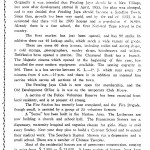
Wrong land titles?
Petaling Jaya was founded in 19531 under British rule, with houses built and sold to the pioneer residents at prices ranging from $2,500 to $25,000. The town status was officially formalised in the Federation of Malaya Gazette dated 7 April 1955.2
This gazette, which lists the lot numbers, corresponds with the lot numbers found in a survey map of the area, which shows the land being owned by one Petaling Estate.3
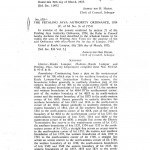
Since the whole area was private land under the ownership of Petaling Estate, and was subsequently sold to the pioneers, should not the land titles be freehold? Yet, leasehold titles were issued for many of the houses in Section 1 through 4 of PJ.
In order for it to rightfully issue leasehold titles, the state government would have had to own the land before leasing it to buyers. That could only have happened if the government had bought the land from the pioneer residents of PJ back in the 1950s and 1960s to make it “state land”. But this did not happen.
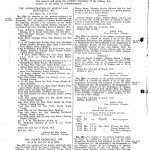
Further, the leasehold titles that the Selangor government issued contain anomalies. For one, some of the titles were issued under the National Land Code, with the date of issue listed between 1962 and 1967.4 However, the National Land Code was only gazetted in 1965. What then of the titles that were issued before this year? I would say that many of these titles are suspect.
What went wrong?
Recall that the privately owned land was sold to pioneers in 1953, and subsequently gazetted as the town of Petaling Jaya under the administration of Kuala Lumpur in 1955.
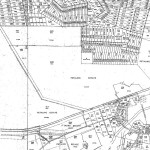
The gazetting of PJ was done under Section 6 of Land Code Cap 138. This Code, or Cap 138, was the law for land matters up until the National Land Code was enacted.
Under the rules prescribed in Cap 138, when a town is declared over an area, the land titles must be amalgamated and subdivided according to the town plan. This means that all the land lot numbers that were shown in the survey plan of Petaling Estate would have to be combined to form one huge PJ town. The individual plots of land that pioneers bought would have to be subdivided and given new lot numbers. In other words, the land lots of the newly gazetted town would have to be redrawn and redivided.
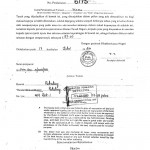
The job of assigning lot numbers and surveying the individual pieces of land was to be done by the director of survey. Only after this exercise was completed could the final titles be issued.
The actual development and sale of the houses to PJ’s pioneer residents happened faster than the British government could cope with at the time, as shown in a letter dated 19 Oct 1955.5 In this letter, the then Kuala Lumpur district officer admitted that it was a formidable task to survey Petaling Jaya. Surveys were done for some areas, as shown in survey plans from 1956.6
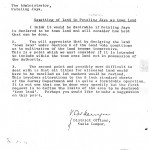
With such a short time to go before Malaya would achieve independence, the British-controlled government could not complete the land survey before the independent Malayan government took over.
What happened post-independence is speculation, but clearly the job of issuing final freehold titles to the pioneers of PJ was not done.
Old law still applies
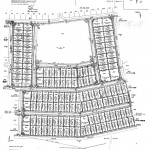
Since all this happened so long ago under different regulations and a different government, can the law then – the Land Code Cap 138 – still be applied, and can it be used to correct the mistake made?
Section 4(1) of the newer law, the National Land Code 1965, states: “Nothing in this Act shall affect the past operation of, or anything done under, any previous land law or, so far as they relate to land, the provisions of any other law passed before the commencement of this Act.”
Therefore, Cap 138, the law that was used to produce the land titles, is still applicable when it comes to correcting a wrong.
To the argument that there is a statute of limitation on the liability of the state government or to correct the wrong that was done, Section 43 of Cap 138 states that there is no limitation by any law on matters pertaining to land.
This argument is further strengthened by Section 341 of the National Land Code, which states: “Adverse possession of land for any length of time whatsoever shall not constitute a bar to the bringing of any action for the recovery thereof by the proprietor or any person or body entitled to an interest therein, and accordingly, the Limitation Act 1953, shall in no circumstances operate to extinguish any title to, or interest in, land.”
What should be done
This report was compiled over a period of almost two years, but it is by no means complete, as there are many other supportive evidences and arguments that I have not included to ensure brevity.
But what I have presented is enough for now to show that some land titles in Petaling Jaya have been wrongly issued, and some might not even be valid. In short, some landowners have long been denied their dues.
The right thing to do would be for the state government to finish the survey started by the British, and issue the final freehold titles according to that survey. ![]()
KW Mak wrote this piece independently of his role as a MBPJ councillor, as land matters are outside the jurisdiction of the local council.
The Nut Graph needs your support


Mikazuki says
So in a nutshell, we, the residents of PJ, have been duped yet again. Go figure! I hope the state government of Selangor will notice your report and RECTIFY this issue so that the pioneers can get the freehold tittles they duly deserve.
Another great insight into issues that are usually left on the back burner. Keep up the good work, Councillor Mak.
BKT says
What about Section 5 PJ? What is the next step, Mak? Do we get organised and demand that this matter be resolved by the Selangor government ASAP?
KW Mak says
Section 5 is covered, but I did not include it in my report because parts of it is freehold and part is leasehold. I did not want to explain too much in the report.
I am talking with certain community leaders to hold a public forum on the issue to discuss how the community would like to proceed on this issue.
I will keep the public informed.
Regards.
Siew Lay says
Fantastic work! Thank you Councillor Mak. Your report is certainly enlightening. The next step is surely for the affected parties to follow up with their elected reps, the State Excos to pursue the matter to an equitable conclusion.
farha says
A BIG thank you to Mr Mak for this piece! And yes, do keep us informed.
KW Mak says
There will be a meeting on this issue this coming Saturday, Oct 23 at 9pm. The venue is being arranged. Please call me at 016-293 9603 for details.
If I do not answer, leave a message with your name and the area you stay in.
Regards.
Casey says
Ai yo yoh, you kay poh Mak! You spoilt Umno/BN’s plot to make billions out of ignorant PJ Old Town house and land owners. Umno/BN members are quietly buying land and houses in PJ Old Town at cheap cheap prices by telling owners that the lease of their properties will expire soon and that their properties boh tak lui soon.
After buying up the currently leasehold land in PJ Old Town, Umno/BN (optimistic in wrenching back control of Selangor from the PR in the next general election) will convert the land to freehold when they are back in power and make tons of ringgit from the cheap cheap properties that they now own.
Nyoman Said says
Dear Mak, I was at the Section 4 RT today. Thanks for enlightening us on this issue. I’m digesting what you said at the meeting and in your article here. The committee you suggested was an excellent idea. God willing, I’ll follow through with Dr Muthu and gang.
Jeyaraj says
Dear Mak,
Excellent research. Now I suppose the next step is to get the state government to concur with your findings and take the necessary action to issue affected PJ residents with freehold titles for their respective properties, in view of the fact that some of their property leases will expire soon.
Many of these residents are retirees who cannot afford to pay the exorbitant premium demanded by the state government to renew their lease, nor can they afford to move out of their homes. I think this is an important issue for any caring state government of the day to prioritise and resolve urgently.
torng says
Dear Mak,
So what will happen after the leasehold titles arrive at their due dates? Many say the titles can be renewed, but who knows what our government’s next move is? I would like to buy property in SS8, a house that has been left for 56 years with a leasehold title. What do you think?
By the way, I would like to show my appreciation for your posting, which has helped many of understand more about land issues in PJ.
KW Mak says
@ torng
There is evidence to suggest that much of the leasehold land in PJ may not be valid, all the way to the Sungei Way new village in fact.
However, as my resources are limited, I would like to stick to fighting for Sections 1 to 4 for the moment.
Regards.
cyril kulabalan says
A BIG thank you, Mr Mak. Do keep us informed.
– Section 4 land owner
KK says
Dear Mak, I am a house buyer wanting to own a property in Sec 4, Old Town with a minimum lease left. Since the titles are not valid, does this mean that the title cannot be transferred? I wonder how the owners in PJ Old Town are going to sell their property?